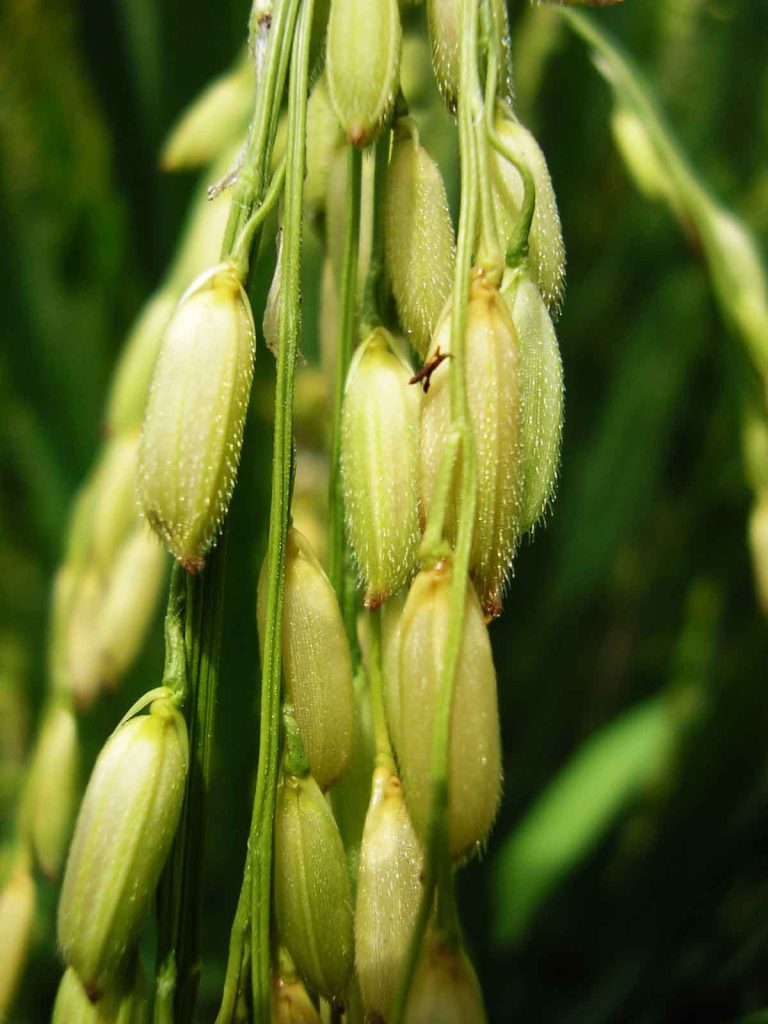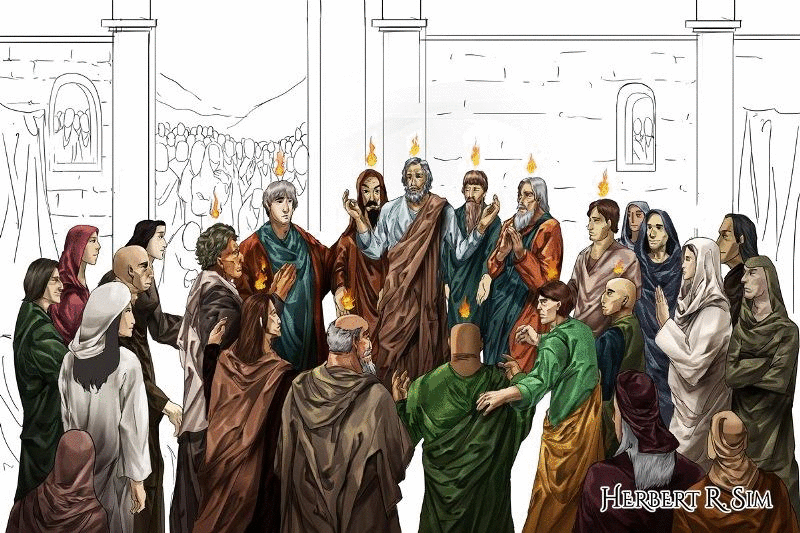52 Weeks in the Ark with Noah and Family (WEEK 37) – Worship is Fellowship in Perfection and Abundance, Part 1 (Organic Worship vs. Processed Worship)
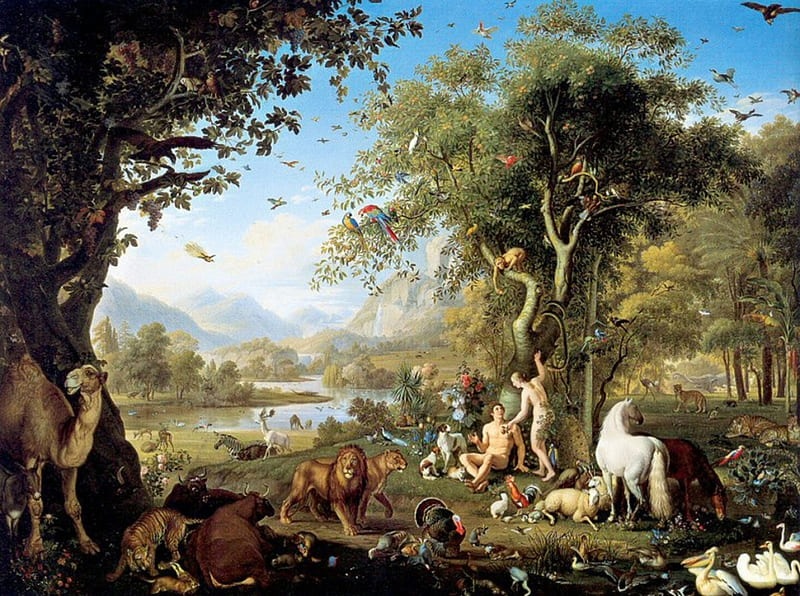
“Yahusha said to her, “Woman, believe Me, the hour is coming when you will neither on this mountain, nor in Yerushalem, worship the Father. You worship what you do not know; we know what we worship, for salvation is of the Yahudi. But the hour is coming, and now is, when the true worshipers will worship the Father in spirit and truth; for the Father is seeking such to worship Him. Yah is Spirit, and those who worship Him must worship in spirit and truth.
WEEK 37 (15th to 21st of Shevat, the 11th Month, in the Hebrew Religious Calendar)
We have many definitions, methods and types of worship. But what was the original or organic meaning and the real essence of worship? Like food that humans used to eat fresh and unprocessed from trees and from the ground, unaided by artificial or unnatural substances, other than natural, biologically-produced materials, worship has also lost its pristine quality.
Worship, first of all, is an act of interacting with a powerful Being within an environment of perfection and abundance. Eden itself was a byproduct of 6 days of Creation from all the materials Elohim had provided: Water, Light, Land, Seed and Air. This “fairy tale” is the narrative that also feeds unbelievers the food they eat today but which they believe merely evolved or came as a product of fortuitous events. They share in the abundance but do not offer the worship the Creator deserves. And often, ironically, they worship the Creation; for they do not know any better. Yet Elohim planted the Garden out the good things They had created to serve basic human needs. And the simple response of recognizing His goodness many cannot even give.
For worship is never forced; but unbelief has its dire consequences. Yet unlimited and unhindered reproduction assured both quality and abundance of what it could produce, qualities we value but do not always ascribe to the Ultimate Source. We worship then to acknowledge such power and love through caring for the gifts themselves — including the Life we received. But worship is for those who truly see. And often, we do not see beyond what the eyes behold.
Worshipping by Sight in the Real Presence of Yah
But Adam and Havah worshipped by sight, not by faith; for they saw Yah and His wonderful Creation. Their worship, therefore, involved being with Yah and doing His will, which involved naming and caring for the animals and planting seeds and propagating plants in the wide and open, untilled lands beginning in Eden and all over the one continent Pangaea before the Flood broke it into so many islands and continents. That was the ultimate will of Yah. One seed of mango and one seed of coconut planted were all that was necessary to show their faithfulness in service and adoration to Elohim to produce more such trees within an environment of perfection and abundance in the newly-made Earth given to our first parents. And the union of their own seeds in their body would also reproduce the goodness that Elohim had placed in their own bodies and souls.
For them, the question of whether their faith or worship saved them or not did not exist. They lived their worship by sight, not by faith, as we do; for they saw Elohim and nothing else was expected of them beyond that. No offering of a pleasant sacrifice in the form of harvests or a bloody sacrifice, no ceremony or tradition to keep, and no food or drink needed to partake of in order to please the visible Creator that they were obedient children and grateful beneficiaries of His unlimited gifts. “Live, eat, drink and be merry; for tomorrow we will live, eat, drink and be merry again!” That was the motto in Eden. And they did it in the Real Presence of Elohim.
For people who think of that as such a boring life, consider how many millions of people spend so much money travelling around the world to see beautiful places, eating varieties of food, and enjoying the colorful cultures and amazing histories of the world – most of them stories that retell the greed, cruelty, corruption and violence of humans. Why do we love to photograph ruins and old castles and share them? And yet, we rarely gasp at the idea or hardly post an image of how beautiful New Yerushalem is and will be, except inside chapels, if ever. And then we go home to do the usual, tedious things we do year-in-and year-out at home, until the next vacation tour. Compared to Adam and Havah in Eden and the beauty, wealth and unlimited potentials for good they had, our world is trash and decayed. In fact, the whole world is in ruins. But often we love this world more than the one to come.
Worship in a Simple and Pristine Economy
The Tree of Life, along all the River of Life in the Garden, provided Adam and Havah with perfect sustenance for Endless Life. How else would they continue to love and serve their Creator if they had food and no Garden to tend and no future of ever reproducing their own seed, as did all the plants and animals? Adam and Havah understood that simple and pristine economy. Everything — and everything — we have and know today comes from that basic principle of Creation. Think of the food you eat: Reproduction to the nth-degree of the original seeds of plants and animals allows us to still eat food today. Perhaps, not as pristine or organic as what they had; but still food that sustains our life up to, hopefully, 80 or 90; whereas they lived to almost a thousand, even as sinners! Moreover, we reproduce ourselves through the unified seed of Adam and Havah passed on to us. We can still participate in their perfection and abundance; it was a promise Elohim would keep and did keep. Worship involves being mindful of our bodies, our minds and our souls and how we are “fearfully and wonderfully made”. (Psa. 139:14)
Hence, Noah and his family did what was necessary to preserve the seed of Adam and Havah through their own seeds which repopulated the barren Earth. 37 weeks after, imagine how bigger and more mature the animals must have become by then. And how about the humans in the Ark? Were they now more convinced of the mercy and power of Yah? Are we? How did they worship Yah? How do we worship today? Still like Adam and Havah or in ways entirely different?
Before we answer those questions, we must ask: What of the “breath of Yah” planted into our physical bodies made of earthly materials? That is, the Life, the Ruach or the Spirit that gave humans the ability to recognize Creation and to be wholly nourished by its bountiful gifts. He provides the ample energy and potential for us to remain perfect in a perfect Creation, whether then or now. Worship involves knowing how to attain that condition in our lives. Yet, like eating unhealthful food, we also worship through unhealthful or unspiritual ways.
Is Worship a Command: An Act that Can be Ordered or Programmed?
Did Yah ever command Adam and Havah to “worship Him”? Did He have to command and say, “Be perfect as I AM PERFECT”? No! They were already perfect creatures in a perfect Paradise! Their worship was their humble work of propagating the goodness of Creation through learning how to understand plants and animals and keeping them whole and prosperous. Yes, Adam and Havah were assured of abundant harvest and abundant health; but they had to plant the seeds that trees produced and nursed the animals that were born under their watch. As long as they remained diligent and ate good food, they lived on. That was the worship required of our first parents. We can also call it WORKSHIP. In Paradise where work was still not a curse, it was a welcome occupation and not a heavy burden at all. They were naked, pure and whole. And Yah walked and talked with them.
Worship was, essentially, fellowship in perfection and abundance with the Creator in the Garden. Fellowship is, in turn, essentially, friendship. Or ONESHIP. To be in Their image and to live in Their image in a Garden They Themselves considered perfect and abundant. Or do we still imagine Adam and Havah kneeling down and praising Elohim in songs and prayers, as if they were slaves or adopted children who had been freed from captivity? Do we still imagine Eden as if it were an extension of our expensive cathedrals, sanctuaries and buildings with polished pews, stained-glass windows or carpet floors; and Yah stood up at the altar while we dance and sing HalleluYahs?
Do you think we can still go back to the purity of worship or fellowship in Eden? Not if our concept of worship is nowhere near that. Yes, Adam and Havah lost their perfection and abundance. Why? They lost pure, unadulterated worship. How? By eating wrong food? No, by believing a lie. Today, we worship in the wrong way because we believe in a lie. Worship is in spirit and in truth. Adam and Havah had no altar, temple or “way of worship”. Within themselves already existed all they needed to be one with Yah: the spirit or breath of Ruach. As long as that breath led them to the Way of Yah, they lived. Eating good food was all they needed to do. But believing the lie that bad food can be eaten safely led them to sin and death. Sinning caused them to cut their perfect fellowship with Elohim. We all know how it is to lose a friend. How about a benevolent Creator?
How Yahusha Restored True Worship
We already talked about how Abba sent the Seed to save humans from the curse of death. But what did the Seed do to restore pure worship? He became a man and walked and talked with humans. He ate and drank with them while healing their infirmities. Yes, since humans were subject to death and lies. He gave them abundant life through the Truth. And it was not material abundance but spiritual abundance that gave the promise of glory, honor and immortality. He is the Way, the Truth and the Life.
And how did He want us for worship Him? In spirit and truth. He did not go to the Temple and claimed it for Himself by proclaiming Himself as the Prophet, the Savior, the King and the Son of Yah. He taught people to worship in their hearts and to search the Truth. He lived with His disciples and breathed the same air they breathed and ate the same food they ate. Yes, He taught and rebuked; but He was patient in planting and nurturing humans until they could bear fruits.
His disciples gathered abundant harvest on Pentecost Day; no, they themselves were firstfruits of the Kingdom! It is all because the Seed had planted, worked and diligently nourished humans, from Enoch to Noah to Abraham to Isaac to Jacob to David and to the apostles to bear His firstfruits who were among the first to harvest the promise of Eternal Life in His Kingdom. Yes, He sits as Yah and Savior, awaiting the final harvest of Ruach (Who is actually the Precious Fruit growing in us) Who now works within and in the lives of His followers. And finally, we shall be among the finalfruits on the last day, regaining eternal abundance and fellowship in Heaven.
But how do we worship today? Obviously, far from spirit and truth. Like Adam and Havah, we have been driven out of the Garden. And like the Pharisees, driven out of the Temple. No, the Temple no longer exists! It was the Temple that was driven out – out of existence, along with the Pharisees and all the false worshipers that ever lived in this world. Who needs a Temple when we have become the Temple of Ruach! Hello???!!! No, HALLELU YAH!!! We keep missing this lesson because we keep hearing and following a lie.
Let us look at modern worship and compare it with pure worship.
Processed Worship vs. Pure or Organic Worship
Yahusha began his ministry first by “cleansing” Himself through fasting and praying for 40 days and 40 nights in the wilderness, being tempted by Satan all the while. Remember Noah’s own cleansing of the Earth before renewal was done? He began to teach on a mount by the Sea of Galilee where He preached a sermon on the beatitudes. Thus, He began planting His seeds of the Truth. Later on, in a garden below Mount of Olives, He would plant His sweat and blood in preparation for shedding his bodily water-and-blood sacrifice on the cross to accomplish His task of bringing humans into the Presence of Elohim. He signified this by tearing apart the veil of the Temple, opening the way back to fellowship in perfection and abundance – that is, free access to the Holy of Holies! What we might consider a fulfilled state religion or church tradition in prophecy has real and essential meaning and purpose for Eternity. The symbols might disappear; but the essence or reality of the promise will remain. Do not be deceived by those who try to revive the symbols for evil purposes.
Yahusha, indeed, had brought back the genuine concept of worship when He fellowshipped with His disciples in intimate, perfect and abundant love and compassion. He never said “worship Me” or “kneel before Me”, as some religions teach or practice today. He became a compassionate and sincere friend to His students. He ate, walked and spoke with them, as He had done before with Adam and Havah. He, in fact, taught true worship to an adulterous woman while drinking water from Jacob’s well where she fetched water daily. And He went with her to meet her town folks as well when she eagerly introduced Him to some of her friends. His abundance of love, mercy and wisdom He shared with sinners by living and being with them for that one day in the entire Eternity He promised to give to them and all who would believe. That day, worship in perfection and abundance commenced in Samaria. There was no need for Him to destroy their temple to Baal; for all He needed to do was replace Baal in their hearts.
And yet, today, we worship in processed manners inside buildings and through traditions that are not organic, natural or spiritual. On the contrary, they come from beliefs and traditions already fulfilled and abolished under the law and the religion of the chosen children of Yah. True worship and fellowship with Yah is in spirit and in truth. When will we learn to do that? Yahusha already taught and showed it through His life and ministry even as a Yahudi and, more so, as Master and Savior to His apostles He considered His friends. No, He had shown it a long time ago in the Garden even before He came down to save fallen humans! Sure, Yah was a fearful and wrathful Being before Moses and the Hebrews at Mount Sinai, condemning some and sparing others based on their words and deeds. It was because He was dealing with hardheaded and rebellious children, not friends who eagerly sought His Presence in their lives. Having been slaves for about 4 centuries, they only knew idolatrous worship from the Egyptians and followed their adulterous ways. Hence, Like Yahusha in the wilderness, Yah had to cleanse Israel for 40 years in the wilderness of Sinai. And that, before they, as a renewed nation of a younger generation, would learn a temporary, processed form of worship, one that present generations have also maintained in their hardheartedness
When we enter New Yerushalem, will we worship Elohim the way we worship today in churches and temples? No, we will walk the streets of gold, drink of the River of Life and eat of the Tree of Life, all of which come from the Yah Who sits on the throne and Who will fellowship with us in the perfection and abundance of the Holy City. He will once again walk and talk with us face-to-face. Hallelu Yah! Remember: There is no temple in the Heavenly City; for Yah will be the Temple. And we shall all be purified and exalted priests offering our acceptable worship in perfection and abundance there. Yet, even now, as temples of Ruach, we can already do that; but do we know how?
The Flood was caused by the total breakdown of fellowship in perfection and abundance on Earth. Except for 8 individuals, everyone else followed the ways of corruption and destruction of Creation, as we have already explained through the depravity of the fallen angels and their hybrid offspring. Yet, even after the cleansing and the rebuilding of the Earth, humans would continue to follow their sinful ways and invented idolatrous worship and religious practices. At the proper time, the Seed finally came to restore all things to Himself.
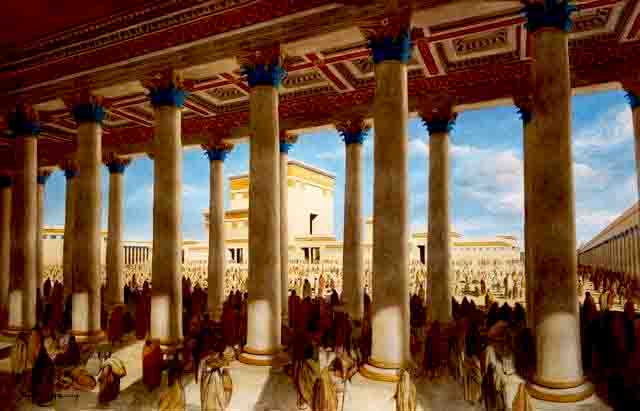
The Ekklesia was a Temporary and Transitory Venue for Faith and Worship in Perfection and Abundance in the Kingdom
The Ekklesia was and is a process – that of calling out humans to become children of Yah to be in the image or character of the Creator. This is what going back to Eden means. To be recreated or to be reborn through faith in the Supreme Creator means going through the process of putting on once again the virtues or qualities that allow us to fellowship with Yah in His perfection and abundance in His Kingdom. For He is King and we are citizens of His Kingdom, if we are His faithful people.
Being perfect or attaining perfection as a command and a process appears scary or presumptuous to so many people. First, they think it is impossible. Secondly, no one, especially sinners so prone to errors and weaknesses, can ever achieve perfection, as the apostles themselves often admitted; yet the command exists: BE PERFECT AS THE FATHER IN HEAVEN IS PERFECT! Let us deal with it; and let Yah do His work while we do what we can. Sadly, the final word we often hear is: We are only human! Right, humans born of parents who once lived in perfection and abundance. We are “only human” because we forget we are children of Yah Who is ever perfect.
We cannot worship in spirit and in truth if we cannot fellowship in the perfection and the abundance of divine reality. And we can attain that state not because we can do it but because Yah allows us to do it. Adam and Havah needed not to be admonished to be perfect. There was no need to tell them to be like Yah. They saw Him and could see themselves not unlike Him. Fellowship in perfect intimacy between Creator and creature only required savoring the realities and blessings of Eden, which was what humans did.
“Eat of all the goodness the Garden produces,” Elohim told them. “Multiply and spread the goodness, beauty and abundance you possess as masters of Creation.” This expressed the fellowship Elohim intended for the entire Creation, whether humans or animals. For even the plants obeyed the Word of the Creator within the complex structure of the Universe. So with the biological, geological, meteorological and physical processes sustaining Creation. All things were for the benefit of humans that they might imbibe, display and maintain the majesty of the Creator through their own lives. Remaining in the sunlight and living freely and abundantly in pristine Nature, naked as they were, kept them physically strong and healthy. So were they also, spiritually and emotionally, as long as they kept constant fellowship with their Creator.
Yet, sin destroyed that perfect process and state in Eden and the future world it was meant to produce. Humans lost the fellowship or communion they had with Yah when they were driven out of Eden. Perfection and abundance disappeared. Work became the path toward achieving those blessings, and yet, in greatly-reduced quality and abundance. To eat of the innate abundance of Creation, humans now had to sweat and toil. Plants and animal still grew for the service of humans. Animals did so not as food in the beginning but as beasts of burden to aid humans in the back-breaking task of farming and producing food, as well as in the work of maintaining the balance of the ecosystem. For we now know from our journey with Noah that too many unclean or hybrid animals around humans would disrupt their moral and physical well-being; however, think of our world today and count the unclean animals living with and around people in their homes and farms. When Noah’s journey ends, we will know that only after the Flood were humans allowed to eat meat – and that from clean animals only until the apostles’ time when the final and effective cleansing will occur for humans, not animals.
But eating meat involved the process of shedding blood upon the ground to remind humans that their bodies and lives came from the ground. Sacrificing good or pure living creatures would illustrate to humans the process of getting back the lost fellowship with the Creator. The animal sacrifice had become the “worship” we often recognize as the necessary payment for our sins. Since Adam and Havah and their sons, worship had made use of a stone altar upon which blood was shed as a remote and temporary fellowship between fallen humans and the perfect Creator. Do we notice how religions try to copy this mode, as if Yah is so remote and detached form humans; and as if there is still a veil (oftentimes, a literal veil is used) between Him and humans and which only priests or pastors can properly and effectively open for others? Do not be blindsided by lies!
There was no assurance of divine acceptance of the offering given on the altar — and even in many religions today. Obedience or compliance even has to be monitored to keep discipline among so-called believers. Yet, doing good or living right was all that was needed for Adam and his family to show before the mighty Yah. They already knew good and evil, sin and death, as well as the promise of returning to the perfection and the abundance of Eden. But the way back was prevented by the sword of the guardian angel by the Tree of Life in Eden. Life in perfect harmony with Yah had been lost, until such time when the Seed restores it.
The sacrifice at the altar, once the act done as a personal expression of an appeal to fellowship with Yah in His majestic Presence, eventually became of the means through which the Chosen Nation would usher in a processed form of national worship or offering aimed at restoring all things back into its pristine condition. The official religion of the Israelites, thus, became the external manifestation of what used to be an invisible and intimate fellowship between humans and the Creator, yet, in the form of a processed faith and worship that unified and strengthened that nation against Yah’s idolatrous enemies. Yes, Yah made His Real Presence felt and seen but behind the veil or curtain. Most important of all, it signified the intermediate steps toward calling and bringing back humans to the old and former paths the patriarchs travelled upon. Isaiah and the rest of the prophets talked often about that promised rest, renewal and refreshing.
Nevertheless, pagans kept their own unique but corrupted methods of seeking fellowship with Heavenly Beings, often through worshipping or fellowshipping with animals, worldly spirits, carved idols or celestial bodies. But the Devil already had his fallen angels working to subvert the plan of salvation. Noah, as we said, was tasked to destroy the worldwide corruption that had totally reversed the perfection and abundance of Creation. In its place were hybrid and despicable creatures created by fallen angels to replace the pure or clean creatures made by the might of the Creator.
The Flood accomplished the cleansing necessary to refresh Earth. Noah and his family would once again offer clean sacrifices to Yah as their reminder of their fallen state and of the promise of the restored worship or fellowship with Yah.
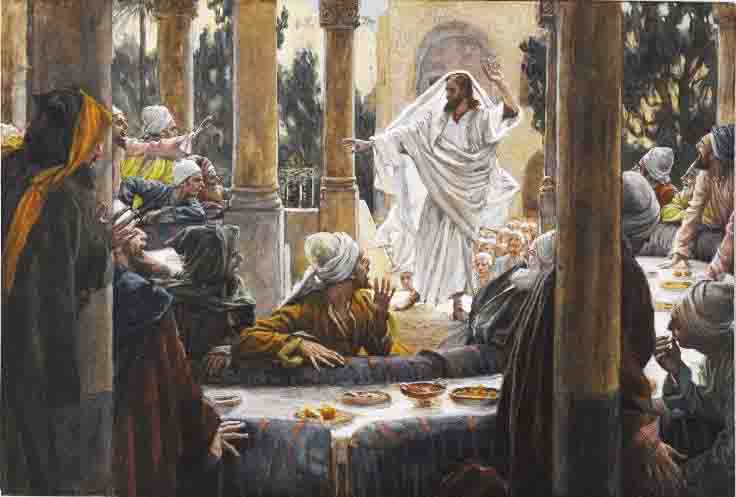
Worship is an Appeal to Fellowship with Yah while Religion is Followship to Rules and Traditions
As we can see, therefore, worship – or what we refer to as religion — eventually became a formal and organized process of seeking Yah’s favor or approval from then till now. It has become an artificial or processed expression of the pure and intimate union of Creator and His creatures — of Father and children. Worship today equates with any religion of processed expression of faith, performed in buildings through regulated ceremonies or programs by assembled people who have agreed to perform such acts as their chosen way to honor Yah. Hence, people come out of it fully believing they have worshipped Yah and have given what they think they needed to give to become acceptable to Him. It is exactly like eating processed food which many think provides them with the proper nutrition they need. For their own purposes, we must admit, it works and people find satisfaction, physically and spiritually. But the question of whether we have attained – or are attaining continually — fellowship with Yah in His perfection and abundance remains. It takes pure, organic faith and worship (and food as well) to be properly nourished according to the Creator’s intentions. As Paul woefully said, that is why “many are weak and sick among you”. (1 Cor. 11:27-32) Was he talking about food or the manner of eating and fellowshipping — hence, worshipping? No! Why? They gathered with the right motives or pure intentions but acted in selfish and disorderly manner. True, many “worship services” are so grand, inspiring and uplifting; but that is another point altogether for another time. For the assembly is also for edification; but it is not totally the same as fellowship with Yah and in Yah.
A process involves transforming organic substances into a different and more-acceptable or palatable form, such as cooking meat or milling wheat and baking it to make bread. Unlike animals that can digest raw grains and derive nutrition directly, humans have to process them to gain their nutritional benefits. Adding salt, spices and other condiments has brought food far from the purity and freshness we once had in the Garden. Sophistication in culinary taste has become a serious pursuit for fine diners. Yet we still yearn for the fresh, raw fruits we pick from frees, although many of what we eat use processed fertilizers and other means to enhance their taste, nutritive value and appearance.
This has also happened to religion — processed faith and worship done through traditions, rituals, ceremonies and services that involve complex systems, organization and financial expertise. Thus, seeking or pleasing Yah has became an unwholesome (even corrupted) and burdensome process that has so far failed to restore pure worship or genuine fellowship with Yah, let alone among believers. On the contrary, it has led people astray and far from the intended purposes set by the Creator Himself.
By the time the Seed arrived, processed worship had reached its abysmal point that He condemned those false leaders who had taken over the Temple in Yerushalem. He did that near the end of His plan of teaching and restoring true worship in spirit and in truth. But how did He display true worship and, thereby, bring it back?
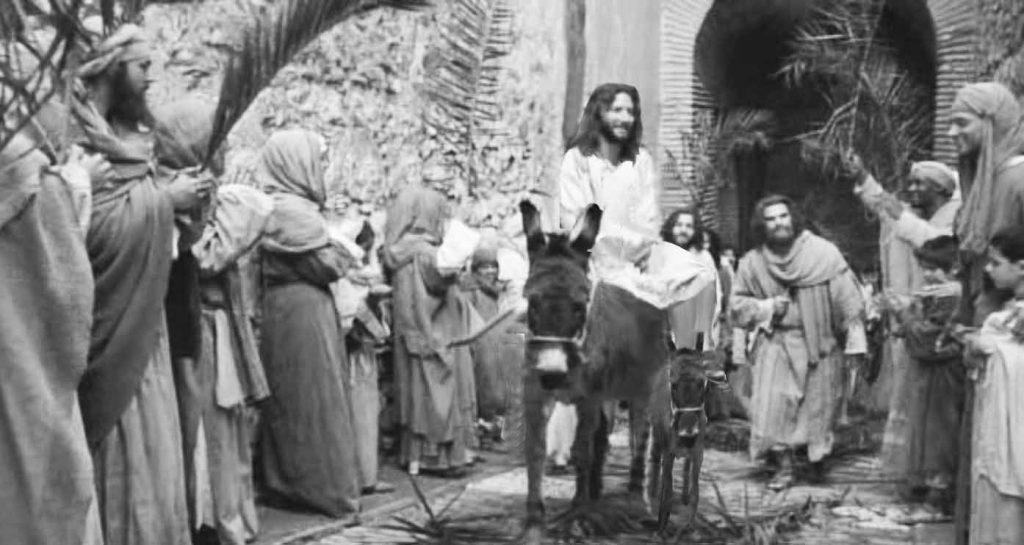
Yahusha Himself sought out humans to appeal to their sense of fellowship — as fellow children of Yah. Thus, He encouraged them to seek the Father and to make a humble appeal to fellowship with Him, to be in His Presence. And being with the Son of Yah, they did accomplish it in the most real and personal manner. Through His work and that of Ruach’s Presence in the lives of His followers even after He had ascended, Yahusha would perfect His task of restoring things. (How, we will deal with next week.) Yet, so many still fail to fully comprehend and appreciate His finished work. Worship, as a devitalized process, remains a source of many sicknesses, conflicts and violence in the lives of humans and nations. And all that, in the name of false religions and ideologies so totally detached from the intentions of Yah. (Religious wars continue to spark in many places. Even those conflicts we think are due purely to territorial, economic or political reasons are, in reality, deeply-rooted in religion or ideology. Unbelief in Yah is also a religion of anti-belief from Satan — the original anti-Yahusha. Satan is spirit; and he and all his minions (demons and humans, that is) wage a spiritual warfare. Do we fight back at all? Or are we with him as his allies?)
The call to worship is clear. And we have all the rich spiritual gifts necessary to fulfill it in perfection and abundance from our hearts. People do not do it because they await to become perfect. But we must worship a perfect Creator first before we can become perfect. It will happen because we simply do it. To think we will fail is imperfection of our faith and worship already, The first step toward becoming perfect is to believe that you can be. Here is Paul’s confirmation of this truth:
I thank my Yahuah always concerning you for the grace of Yah which was given to you by Yahusha Masshiak, that you were enriched in everything by Him in all utterance and all knowledge, even as the testimony of Masshiak was confirmed in you, so that you come short in no gift, eagerly waiting for the revelation of our Lord Yahusha Masshiak, who will also confirm you to the end, that you may be blameless in the day of our Lord Yahusha Massiak. Yah is faithful, by whom you were called into the fellowship of His Son, Yahusha Masshiak our Lord.
The grace of the Lord Yahusha Masshiak, and the love of Yah, and the fellowship (or communion) of the Ruach Ha Kodesh be with you all. Amen.
– 2 Cor. 13:14
